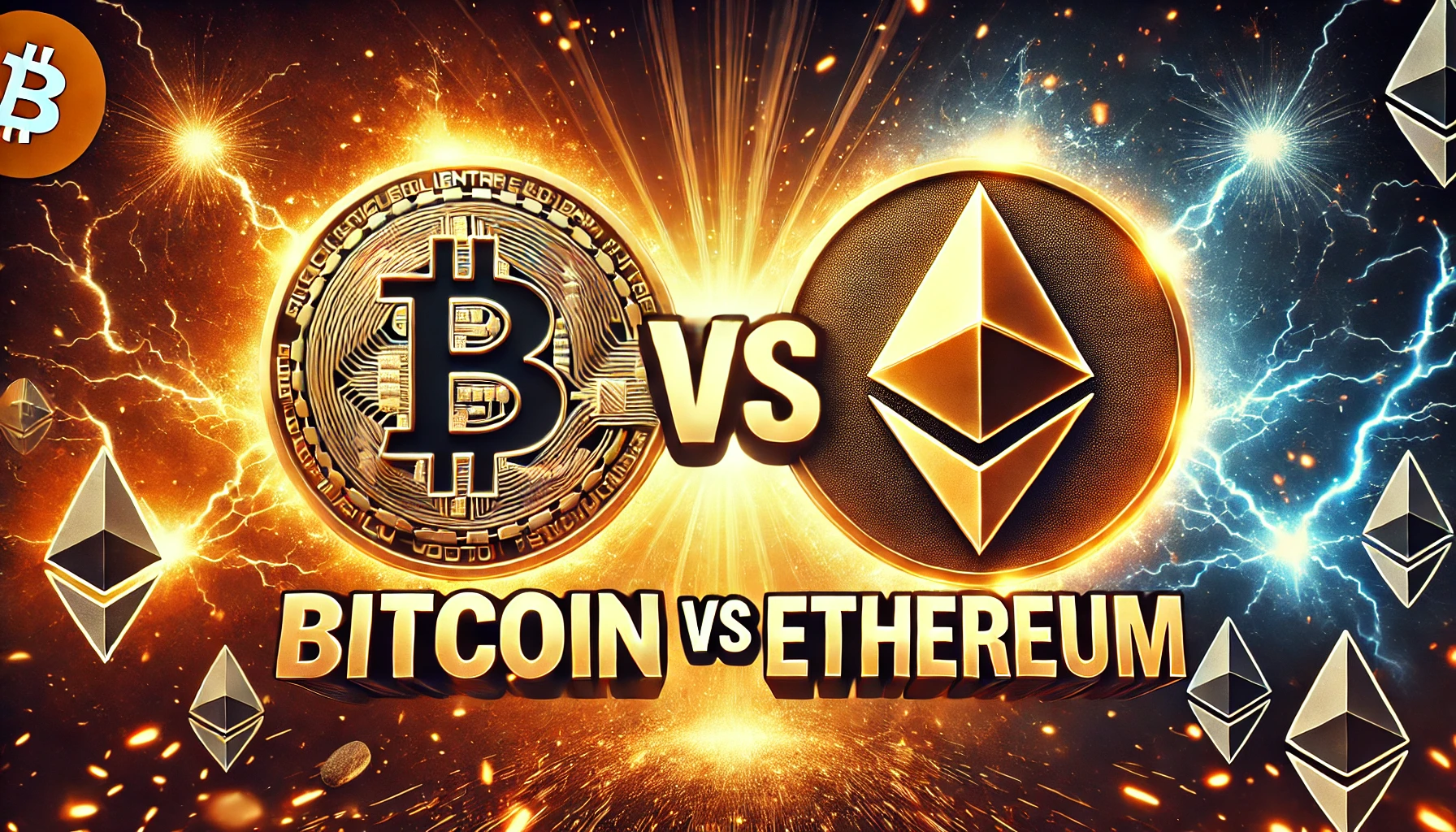Can Ethereum Become the Next Bitcoin In the ever-evolving world of cryptocurrencies, Bitcoin (BTC) and Ethereum (ETH) stand as the two most prominent digital assets. While Bitcoin is often hailed as “digital gold,” Ethereum has carved its niche as a versatile platform for decentralized applications. This article delves into the key differences between Bitcoin and Ethereum, exploring whether Ethereum has the potential to become the next Bitcoin.

Origins and Purpose👇
Bitcoin, introduced in 2009 by an anonymous entity known as Satoshi Nakamoto, was designed as a decentralized digital currency to facilitate peer-to-peer transactions without intermediaries. Its primary function is to serve as a store of value and a medium of exchange.
Ethereum, launched in 2015 by Vitalik Buterin and his team, extends beyond digital currency. It provides a platform for building decentralized applications (dApps) and executing smart contracts—self-executing contracts with the terms directly written into code. This functionality enables developers to create a wide array of applications, from decentralized finance (DeFi) platforms to non-fungible tokens (NFTs).
Technology and Consensus Mechanisms
Both Bitcoin and Ethereum operate on blockchain technology but differ in their consensus mechanisms.
- Bitcoin: Utilizes Proof of Work (PoW), where miners solve complex mathematical problems to validate transactions and secure the network. This process is energy-intensive and has faced criticism for its environmental impact.
- Ethereum: Initially used PoW but transitioned to Proof of Stake (PoS) with the Ethereum 2.0 upgrade, known as “The Merge,” in September 2022. In PoS, validators are chosen to create new blocks and confirm transactions based on the number of coins they hold and are willing to “stake” as collateral. This shift significantly reduced Ethereum’s energy consumption by approximately 99.9% The Times.
Supply and Market Dynamics
- Bitcoin: Has a capped supply of 21 million coins, contributing to its scarcity and perception as “digital gold.” As of November 1, 2024, approximately 19 million BTC have been mined.
- Ethereum: Does not have a fixed supply limit. However, with the implementation of Ethereum Improvement Proposal (EIP) 1559 in August 2021, a portion of transaction fees is burned, potentially making ETH deflationary under certain conditions.
Use Cases and Ecosystem
- Bitcoin: Primarily serves as a store of value and a medium of exchange. Its simplicity and security make it a preferred choice for those seeking a decentralized alternative to traditional currencies.
- Ethereum: Offers a robust platform for developers to build and deploy dApps and smart contracts. This has led to the growth of DeFi platforms, NFT marketplaces, and various other applications, positioning Ethereum as a foundational layer for blockchain-based innovation.
Current Market Performance
As of November 1, 2024:
- Bitcoin (BTC): Trading at $70,073.00, with a 24-hour change of -3.17%.
- Ethereum (ETH): Trading at $2,520.75, with a 24-hour change of -4.40%.
Can Ethereum Become the Next Bitcoin?
While Bitcoin and Ethereum serve different primary functions, Ethereum’s versatility and continuous development have led some to speculate about its potential to surpass Bitcoin in market capitalization and influence. Ethereum’s transition to PoS, its role in DeFi and NFTs, and its active developer community contribute to its strong position in the crypto space.
However, it’s essential to recognize that Bitcoin’s established status as a store of value and its simplicity offer unique advantages. The two cryptocurrencies cater to different needs within the digital asset ecosystem.
Also Read 👉 Top 9 Meme Coins to Invest in 2025
Conclusion
Ethereum’s advancements and broad applications make it a formidable entity in the cryptocurrency world. While it may not replace Bitcoin, it complements it by offering functionalities beyond digital currency. Investors and enthusiasts should consider the distinct roles each plays when navigating the crypto landscape.
Note: Cryptocurrency investments carry risks due to market volatility. It’s advisable to conduct thorough research or consult with a financial advisor before making investment decisions.


